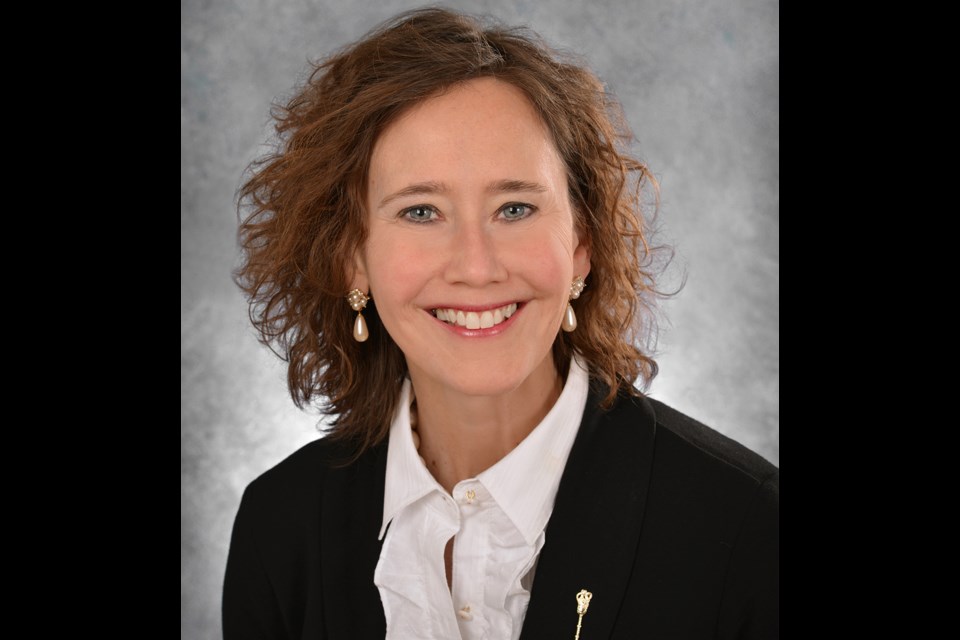REGINA – The Alberta Government won’t help the feds confiscate firearms and the Saskatchewan Government says they are considering their options.
Federal Public Safety Minister Marco Mendicino sent letters to provincial governments in August asking them to help Ottawa confiscate firearms starting in the fall of 2022.
“We continue to look at every option available to address this legislation and will be announcing our response in the next few weeks,” Saskatchewan Justice Minister Bronwyn Eyre told SASKTODAY.ca in an email on Tuesday.
“Confiscating the property and eroding the rights of responsible, law-abiding firearms owners does not address the illegal, violent use of firearms in our communities, and we would ask the federal government to help support law enforcement initiatives focused on tackling gangs and violent offenders,” said Eyre.
Christine Tell, Minister of Corrections, Policing and Public Safety, sent a letter to RCMP F Division Assistant Commissioner Rhonda Blackmore Tuesday saying that Saskatchewan doesn’t support or authorize the use of provincially funded resources for any process connected to the federal government’s firearms buyback program.
“RCMP in F Division have been indicating for several years that they are extremely burdened with calls for service and lack the ability to be proactive,” said Tell. “It has also been indicated that additional provincial resources are required to meet this demand. It would seem to be countertuitive to take our front-line resources from our provincial policing service to carry out a federally mandated administrative program.
Tell said the province won’t support initiatives that only impact law-abiding, RCMP vetted hunters, sport shooters, ranchers, farmers, and others who use firearms for lawful and good reasons. She added that the province supports anti-crime initiatives that focus on the criminal use of illegal firearms, preventing and combating gang violence and dealing with illegal or smuggles guns.
On Monday, Alberta Justice Minister Tyler Shandro sent a letter to Alberta RCMP K Division Deputy Commissioner advising him that confiscating firearms wasn’t Alberta’s “objective, priority or goal,” and told the RCMP not to help the federal government take firearms from Albertans.
“Those firearms were acquired legally,” said Shandro, adding they weren’t previously restricted. “They are hunting rifles and shotguns and historical artifacts almost 100 years old.”
Shandro said RCMP K Division commanding officer doesn’t support the federal government’s measures to confiscate firearms. He said if Ottawa pushes, Alberta will invoke Article 23, a dispute resolution mechanism of the province’s Police Services Agreement with Ottawa, to prevent Ottawa from using police officers to enforce the weapons ban.
The federal government’s Bill C-21 has come under heavy criticism across Canada. The federal government says the aim of Bill C-21 is to reduce gun violence in Canada but critics maintain that it targets law-abiding firearms owners and not criminals.
“The Government of Saskatchewan remains very concerned about the impacts of Bill C-21, re-introduced by the federal government this past spring, which denies important rights of lawful firearms owners,” Eyre told SASKTODAY.ca. “Inexplicably, the federal government has also brought forward legislation that eliminates mandatory minimum sentences for several serious firearms-related offences.”
Ottawa announced its firearms ban in May 2020 and prohibited more than 1,500 models of firearms they call “assault-style” firearms.
Turn over banned firearms by October 2023
The federal government is giving gun owners until October 2023 to turn in their now-banned firearms.
“Assault-style weapons like the AR-15 do not belong in our communities,” Audrey Champoux, press secretary for Marco Mendicino, Minister of Public Safety, told SASKTODAY.ca on Tuesday. “That’s why we banned them, and why we’re implementing a buyback program to get these weapons of war out of our communities for good.
“While assault-style firearms are already illegal, current owners are covered by an amnesty order, which expires on October 30, 2023,” added Champoux.
Shandro, however, said the federal government isn’t using the term “assault-style” correctly.
“The federal government has labeled them as assault-style, their words, that’s a label designed to scare Canadians who are unfamiliar with firearms.”
Shandro said that’s a description used purely based on their appearance and not on any danger they pose, or mechanical capability they possess.
“These guns are not materially different from any number of semi-automatic rifles and shotguns that continue to be legal.
“[It’s] overreach into the lives of law-abiding firearms owners,” added Shandro. “This is politically motivated confiscation pure and simple. It will not make Alberta a safer place or reduce the criminal misuse of firearms.”
Alberta also plans to intervene in six judicial constitutional reviews challenging the federal government’s plan, said Shandro.
How high can buyback program costs go?
In 2021, a Parliamentary Budget Officer’s report estimated the gun buyback program could cost between $47 million and $756 million. Last year, Bill Blair, former federal Public Safety Minister, said the compensation costs of the program would be between $300 and $400 million.
“Over the past months, we have been preparing to launch the buyback program, and released the draft price list in July,” said Champoux. “These preparations involve extensive engagement with provincial and territorial counterparts, including letters sent this past summer. We look forward to sharing more details about the program in due course. Minister Mendicino has been clear that the first assault-style weapons will be bought back this year.”
In 2021, the federal government estimated that approximately 150,000 firearms would be confiscated. The Canadian Sporting Arms and Ammunition Association, however, estimated the number to be about 518,000 firearms.
Story updated to include comments from Christine Tell, Minister of Corrections, Policing and Public Safety,
— for more from Crime, Cops and Court.




